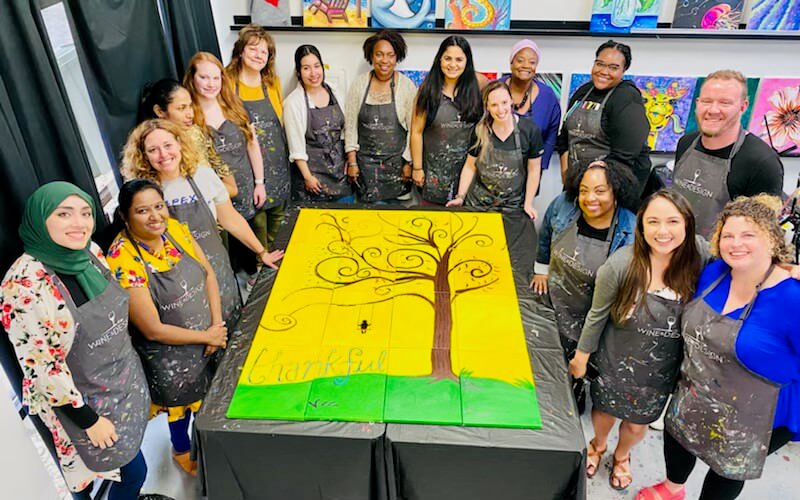Pediatric Mental Health | Durham & Chapel Hill
Specialized Child Mental Health Therapy Services in the Triangle

At Therapy Smarts, we understand the importance of mental health in shaping your child’s emotional well-being, relationships, and overall development. Our specialized pediatric mental health therapy services are designed to support children and families in Durham, Chapel Hill, and surrounding areas. Whether your child is struggling with anxiety, emotional regulation, or behavioral challenges, our compassionate team is here to help.
Does my Child Need Mental Health Therapy?
As a parent, you know your child better than anyone, but it isn't always easy to distinguish between a 'tough phase' and a need for professional support. While all children experience emotional ups and downs, persistent patterns of distress can interfere with their ability to learn, play, and grow. At Therapy Smarts, we help families bridge that gap. If your child’s behaviors are beginning to impact your home life, their school performance, or their self-esteem, a comprehensive clinical assessment can provide the clarity and roadmap you need. If you happen to notice difficulties in one or more areas, a comprehensive clinical assessment may be appropriate:
- Tantrums
- high activity level
- negative attention seeking behaviors (whining and bossiness)
- Anxious, avoidant or insecure attachment
- Fearful
- Low self-esteem, self-worth
- lack of pro-social skills
- aggressive behaviors
- destructive behaviors (such as breaking toys on purpose)
- Defiance and Noncompliance
- Refusal to follow adult directives and house rules
- Struggles with behaviors in public
- Sadness/Depression
- Anxious behaviors/phobias
- anger
Our mental health and psychology team specializes in pediatric mental health therapy, helping children develop the skills they need to thrive at home, in school, and in the community.
Have Questions? We are Here to Help
Who Can Benefit From Behavioral Therapy for Kids?
Everyone! Those who struggle with mental health and even those that consider themselves mentally healthy can benefit from Therapy. Everyone can benefit from having a non-judgmental space for individuals to explore their thoughts, emotions and behaviors, learn healthy coping mechanisms, talk about things that are on your mind and important to you and help you grow as a person gaining insight on who you are.
A therapist can help improve a person’s communication skills, manage stress and anxiety, and set and achieve personal goals. Even mentally healthy people can benefit from this introspective process, gaining a deeper understanding of themselves and their motivations.
Treatments Utilized in Pediatric Mental Health Therapy
- PCIT (parent child interaction therapy)
- Play based therapy from ages 2-7
- FT (family therapy)-all ages
- CBT (Cognitive behavioral therapy)-all ages
- Triple P (positive parenting program)- birth to 16
Hear from Our Program Director: Ms. Delia’s Overview of Parent-Child Interaction Therapy (PCIT)
Testimonials
Pediatric Mental Health Therapy and Services : Frequently Asked Questions
We provide:
- Behavioral assessments
- Emotional and social evaluations
- Parent coaching
- Counseling for anxiety, ADHD, emotional regulation, etc.
- Support in developing coping and self-regulation strategies
Yes, we offer parent support sessions and counseling as part of our holistic approach to care. Supporting the entire family is key to a child’s progress.
Parents initially develop goals for their child based on their chief complaints. After working together with the child/adult,goals can then become a collaboration between therapist and family.
Play based therapy can last between 4-6 months (dependent on parent practice) and then the child will graduate based on behaviors and assessment tracking. Talk therapy does not have a timeline, it is based on when the client and family feels they have met their goals.
Parent doing play based therapy is directly involved in all sessions. For children doing talk therapy, parents bring their child into the session and provide updates, areas of progress and areas of concern. After the session, the therapist and child usually process with parents on skills learned, so parents can assist with helping practice at home.
Sessions are usually once weekly with a routine schedule (i.e. every Monday at 8:30am). Sessions can be rescheduled with discussion with the therapist.
Sessions can be completed both In-person and Virtually. Both work exceptionally well with the modalities being delivered.
A Holistic Approach to Your Child’s Growth
Occupational Therapy : Does your child struggle with ‘big feelings’ due to sensory overstimulation? Our Occupational Therapy (OT) team works alongside our counselors to help children regulate their physical and emotional responses.
ABA Therapy: For children on the Autism spectrum, we combine Applied Behavior Analysis (ABA) with mental health support to build social skills and emotional resilience.
Speech Therapy: Frustration from communication delays often leads to behavioral outbursts. Explore how our Speech Therapy can give your child the words they need to express their emotions.
Get Started Today
If you’re searching for professional mental health counseling in Durham, NC, or nearby areas like Raleigh and Chapel Hill, Therapy Smarts is here to help. Contact us today to schedule an evaluation and take the first step toward supporting your child’s mental health and well-being.
📞 Call us at 919-378-1340
📧 Email: office@therapysmarts.net
📍 Locations in Durham and Chapel Hill, NC
Durham Clinic: 1920 NC-54 Suite 240, 360 Durham, NC 27713
Chapel Hill Clinic: 1130 Weaver Dairy Road, Chapel Hill, NC 27514
Lorem ipsum dolor sit amet, consectetur adipiscing elit. Ut elit tellus, luctus nec ullamcorper mattis, pulvinar dapibus leo.


